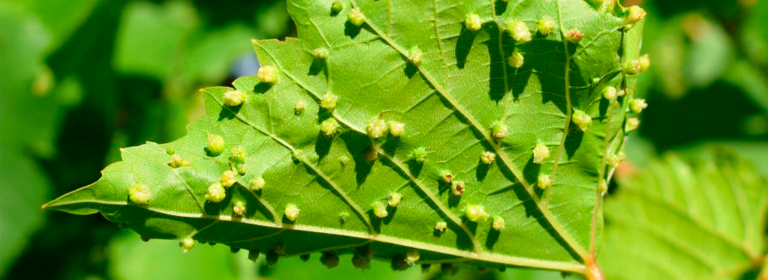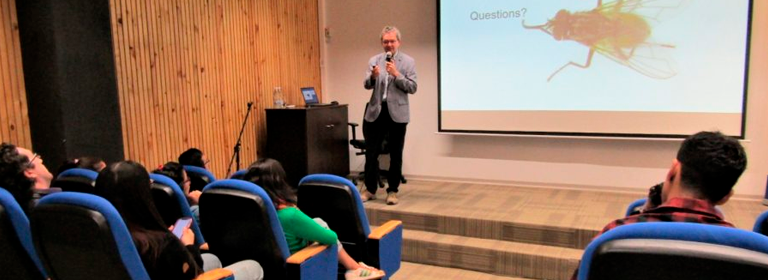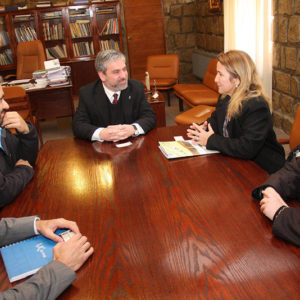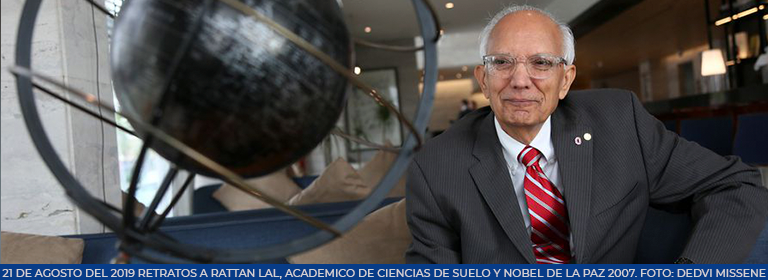Margarita Correa, a researcher at the Universidad Católica del Maule (UCM), said that the new weather patterns affect invasive insects and their natural enemies differently, generating a lack of synchronization between the two.
 Climate change not only accelerated the reproduction rate of pests that affect agricultural plantations, but also altered the cycles of their natural enemies.
Climate change not only accelerated the reproduction rate of pests that affect agricultural plantations, but also altered the cycles of their natural enemies.
«Insects that feed on pests or that eliminate invaders by laying eggs inside them have a little harder time adapting to climate change. We have to see how we can optimize this biological control, because the increased pest populations outnumber the invaders that are out of sync,» said Doctor in Sciences, Margarita Correa, a member of the Center for Research and Advanced Studies of Maule (CIEAM), belonging to UCM.
«Now winters are milder. Agriculturally speaking, we have a cold deficit of 25 to 30 percent with respect to other winters and, therefore, pests and their high population levels overcome these adverse conditions, and can double their numbers in high temperatures. We can boost the adaptation of natural enemies through molecular or behavioral studies,» added the researcher in molecular ecology.
Modern agriculture sees biological control as an alternative to fumigants, which are resisted by both academia and increasingly environmentally conscious consumers.
«Pests are expanding their geographic range and reaching cold places where they did not reach due to adverse conditions and all this is happening super-fast. Field studies have been done to see which are the most abundant enemies,» said the academic.
Correa, who is also an expert in population genetics and invasion biology, participates in a project financed by the Fondo Nacional de Desarrollo Científico y Tecnológico, Fondecyt, which aims precisely to provide greater efficiency to the biological control of pests in fruit trees and vineyards, in the context of water scarcity.
 The initiative, known as «Octopus», is led by the researcher of the Institute of Biological Sciences of the University of Talca, Christian Figueroa.
The initiative, known as «Octopus», is led by the researcher of the Institute of Biological Sciences of the University of Talca, Christian Figueroa.
«Octupus, which means ‘octopus’, is an acronym for the name of the project and we liked it because it evokes the arms that link the different participants. The idea is that through national and international collaborations, we can join forces and optimize biological pest control,» said the agronomist.
The effort also counts on the cooperation of academics from UCM and Universidad de Chile, Hugo Benítez and Luis Castañeda, respectively; and scientists from France, Uruguay, the United States and Turkey.













